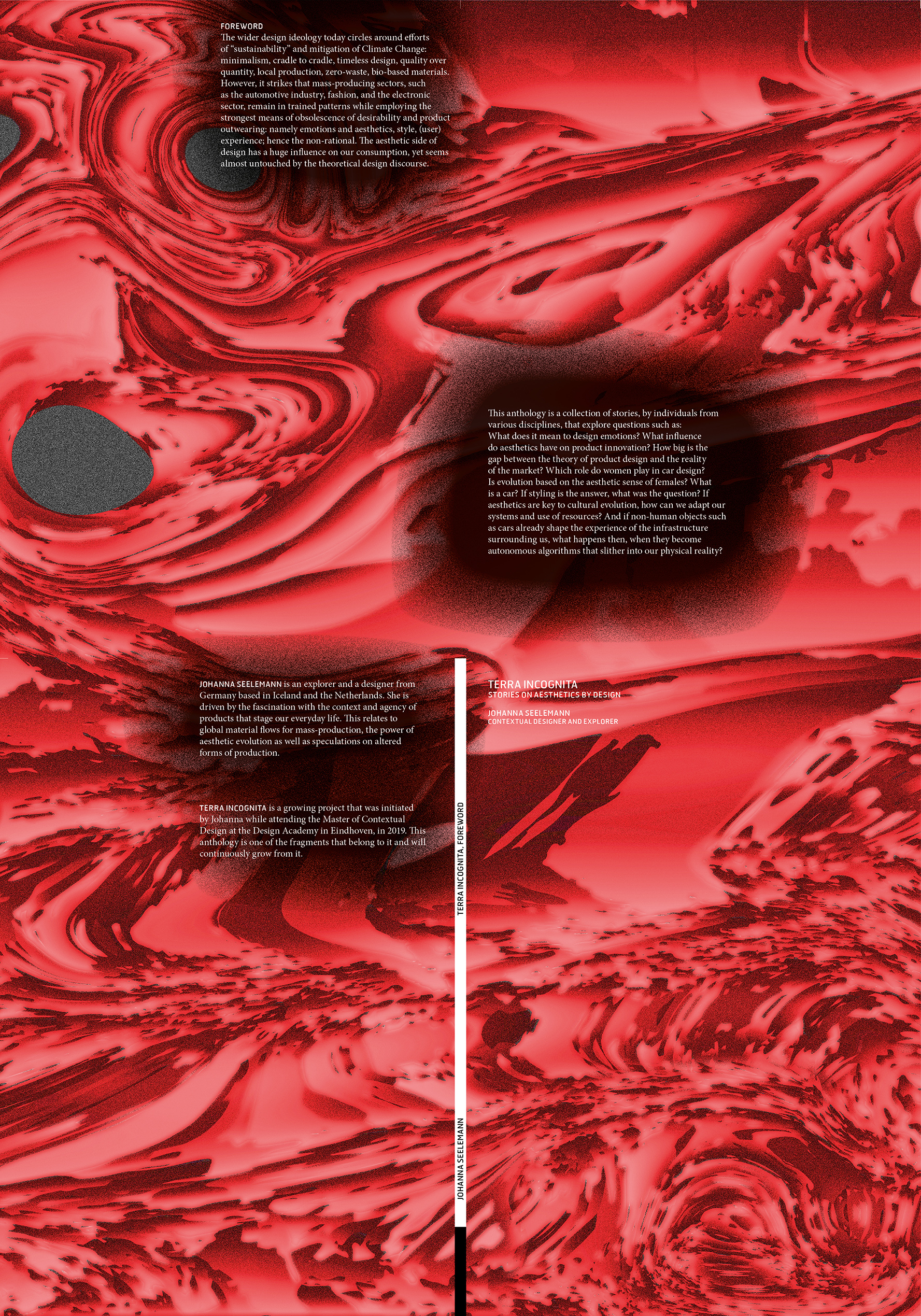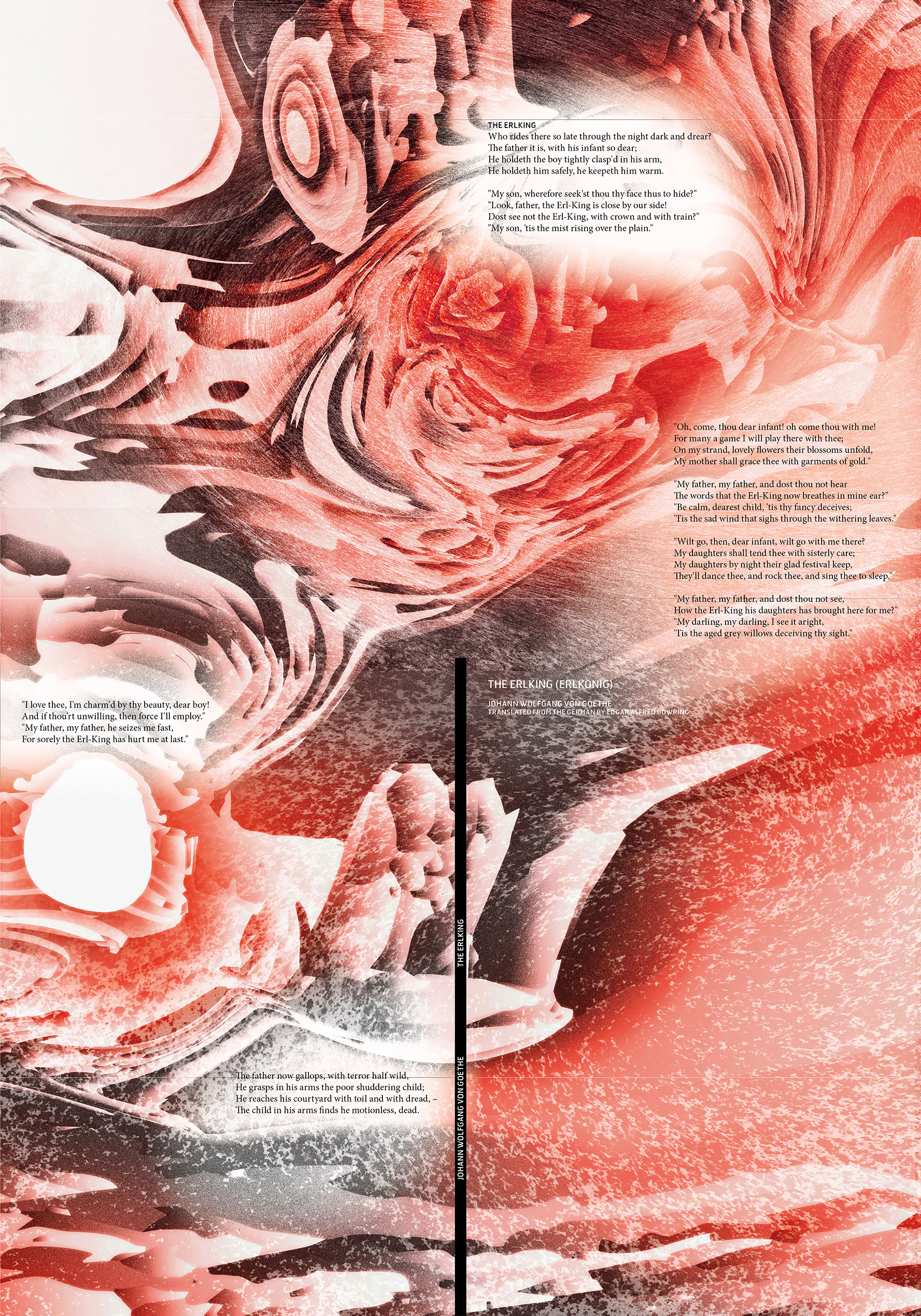

The Terra Incognita anthology is a collection of stories, by individuals from various disciplines, that explore questions such as: What does it mean to design emotions? What influence do aesthetics have on product innovation? If aesthetics are key to cultural evolution, how can we adapt our systems and use of resources? And if non-human objects such as cars already shape the experience of the infrastructure surrounding us, what happens then, when they become autonomous algorithms that slither into our physical reality?
The anthology stories are written by automotive historian Markus Caspers about the Unknown Avant-Garde, semiotician Ben Shai van der Wal about the Renault EZ Ultimo, cognitive scientist and interaction designer Nils Wiberg about Snakes In Paradise, as well as political scientist and creative director Adriana Pacheco about the Reference Man.
The wider design ideology today circles around efforts of “sustainability” and mitigation of climate change, including minimalism, cradle to cradle, timeless design, quality over quantity, local production, zero-waste, bio-based materials. However it strikes that many mass-producing sectors, such as the automotive industry, fashion, and consumer electronics, remain in trained patterns while employing the strongest means of obsolescent desirability — that of emotions and aesthetics, style, (user) experience, hence the irrational.
Through the media of object, film and anthology, this collaborative project is a compilation of stories that seek narratives on aesthetic evolution and urge systemic thinking on adaptation.
The anthology stories are written by automotive historian Markus Caspers about the Unknown Avant-Garde, semiotician Ben Shai van der Wal about the Renault EZ Ultimo, cognitive scientist and interaction designer Nils Wiberg about Snakes In Paradise, as well as political scientist and creative director Adriana Pacheco about the Reference Man.
The wider design ideology today circles around efforts of “sustainability” and mitigation of climate change, including minimalism, cradle to cradle, timeless design, quality over quantity, local production, zero-waste, bio-based materials. However it strikes that many mass-producing sectors, such as the automotive industry, fashion, and consumer electronics, remain in trained patterns while employing the strongest means of obsolescent desirability — that of emotions and aesthetics, style, (user) experience, hence the irrational.
Through the media of object, film and anthology, this collaborative project is a compilation of stories that seek narratives on aesthetic evolution and urge systemic thinking on adaptation.
Concept, ProductionJohanna Seelemann
AuthorsMarkus Caspers, Nils Johan Wiberg,
Graphic DesignAdriana Pacheco and Johanna Seelemann
ContextMaster of Contextual Design, 2019
Johanna Seelemann
AuthorsMarkus Caspers, Nils Johan Wiberg,
Adriana Pacheco, Ben Shai van der Wal,
Anonymous, Johanna Seelemann
Graphic DesignAdriana Pacheco and Johanna Seelemann
ContextMaster of Contextual Design, 2019
Design Academy Eindhoven





